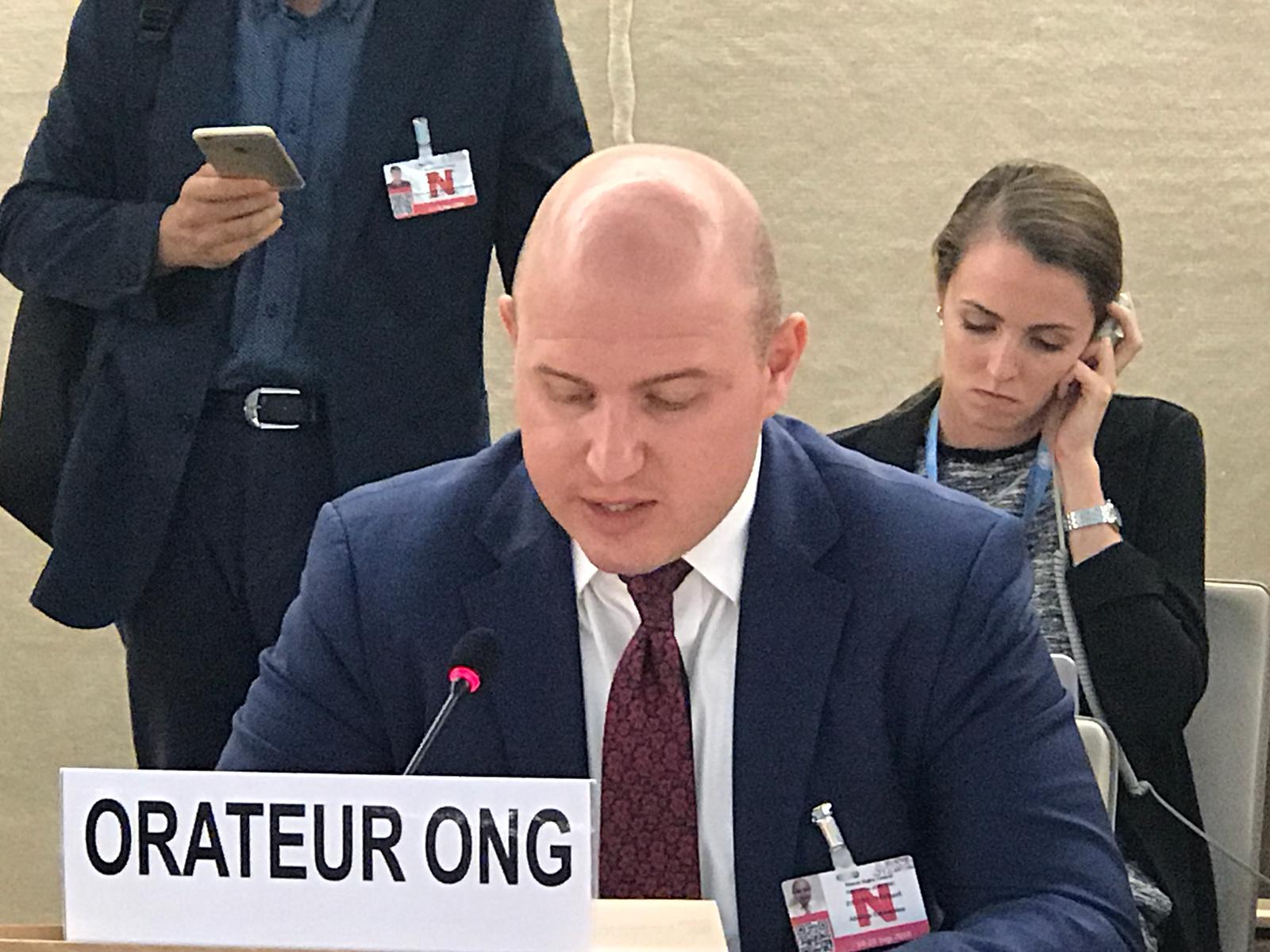On Tuesday 11 September 2018, during the 39th session of the United Nations, Americans for Democracy & Human Rights in Bahrain (ADHRB) delivered an oral intervention during the Item 2 General Debate on the oral update by the new High Commission for Human Rights, Michele Bachelet. In the remarks, ADHRB raised concern about the widespread arrests of women’s rights activists and human rights defenders, as well as the continued suppression of the right to free expression, assembly, and association. In particular, the remarks called attention to the situations of Samar Badawi, Naseema Alsada, Loujain al-Hathloul, Omar al-Said, Salman al Awda, and Mohammed al-Bajadi. Continue reading for the text of her remarks, of click here for a PDF of the intervention.
Madam High Commissioner,
Alsalam and ADHRB congratulate you on your appointment as High Commissioner for Human Rights. As you assume your mandate, we would like to call your attention the deterioration of the human rights situation in Saudi Arabia, in particular the widespread arrests of women’s rights activists and human rights defenders, as well as the continued suppression of the right to free expression, assembly, and association.
When Saudi Arabia granted women the right to drive in June 2018, it appeared women’s rights took a step forward, but the arrests of dozens of women’s rights activists, including those who vocally campaigned for the right to drive has meant two steps backward. Many of these human rights defenders remain arbitrarily detained in prison on spurious and unsubstantiated state security charges, including Samar Badawi, Naseema Alsada, and Loujain al-Hathloul.
The arbitrary detention of women’s rights activists is part of a larger campaign by officials to suppress dissent and jail peaceful critics. Since last July, scores of people critical of the government have been arrested, including clerics, writers, academics, journalists, and human rights defenders such as Salman al-Awda, Mohammed al-Bajadi and Omar al-Said. This coordinated campaign comes as Saudi Arabia attempts to enhance its image on the global stage. But these actions are not those befitting a four-time member of the Human Rights Council or of a member of the UN’s Commission on the Status of Women.
Madam High Commissioner we hope that you continue your predecessor’s willingness to call out all human rights abusers, including the rich and powerful.
Thank you





